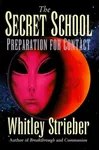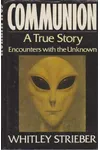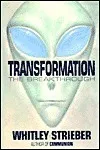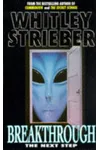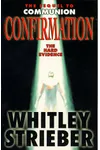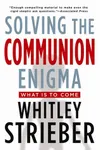Step into the mysterious world of Whitley Strieber’s Communion series, where the line between reality and the unknown blurs in a thrilling exploration of alien encounters! This groundbreaking nonfiction series, starting with the 1987 bestseller Communion: A True Story, recounts Strieber’s alleged abductions by otherworldly beings, sparking global fascination and debate. With its vivid storytelling and provocative themes, Communion invites readers to question the nature of consciousness and our place in the cosmos.
Blending horror, spirituality, and ufology, the series captivates with its raw emotional depth and Strieber’s refusal to definitively label his 'visitors' as extraterrestrials. Ready to dive into a narrative that’s as unsettling as it is thought-provoking? Let’s explore!
How Communion Began
In the mid-1980s, Whitley Strieber, already a celebrated horror novelist with works like The Wolfen, experienced a life-altering event. On December 26, 1985, at his secluded cabin in upstate New York, Strieber awoke to strange disturbances and a sense of lost time. Under hypnosis with ufologist Budd Hopkins, he recalled encounters with enigmatic beings, which he detailed in Communion: A True Story. Published in 1987, the book became a nonfiction bestseller, topping charts for six months and reshaping UFO literature with its introspective approach.
Strieber’s inspiration stemmed from a need to process his trauma and share a story he believed transcended simple alien tropes. His background in horror lent a gripping narrative style, while his openness to spiritual and scientific possibilities broadened the series’ appeal. The iconic cover, featuring Ted Seth Jacobs’ haunting 'grey' alien painting, cemented its place in pop culture.
The Heart of Communion
The Communion series spans six nonfiction books, each delving deeper into Strieber’s experiences and their implications. Communion: A True Story (1987) chronicles his initial 1985 abduction, describing 'visitors' with almond-shaped eyes and a female-like entity he likened to the Sumerian goddess Ishtar. Transformation: The Breakthrough (1988) explores his evolving relationship with these beings, shifting from fear to curiosity about their purpose. Breakthrough: The Next Step (1995) reflects on his attempts to communicate with the visitors, while The Secret School: Preparation for Contact (1997) connects his childhood memories to a broader cosmic narrative.
The series’ themes are as layered as they are provocative: the nature of consciousness, the possibility of nonhuman intelligence, and humanity’s spiritual evolution. Strieber’s style is intimate and reflective, blending raw fear with philosophical musings. Set primarily in his upstate New York cabin, the eerie, isolated backdrop amplifies the sense of otherworldly intrusion. Unlike traditional UFO narratives, Communion avoids sensationalism, instead probing the psychological and existential impact of the unknown.
Strieber’s refusal to pin down the visitors’ origins—whether aliens, supernatural entities, or manifestations of the human psyche—sets the series apart. This ambiguity invites readers to grapple with their own beliefs, making each book a journey into the uncharted territories of mind and reality.
Why Communion Resonates
Communion’s impact on UFO literature and popular culture is undeniable. The series popularized the 'grey' alien archetype, influencing media from The X-Files to Resident Alien. Its 1989 film adaptation, starring Christopher Walken, brought Strieber’s story to a wider audience, though it leaned into surrealism over fidelity. Beyond entertainment, Communion sparked serious discussions about alien abductions, with figures like Harvard psychiatrist John Mack citing it in their research.
The series’ lasting appeal lies in its fearless exploration of the unknown. By blending personal narrative with universal questions, Strieber created a touchstone for believers and skeptics alike. Its influence endures in ufology forums, podcasts like Strieber’s Dreamland, and the growing acceptance of UFOs as a legitimate topic, as seen in recent government disclosures.
- Publication Years: 1987–2011
- Number of Books: 6
- Notable Adaptation: 1989 film Communion
Grab Communion: A True Story and dive into a world where the unknown beckons! Whether you’re a UFO enthusiast or a curious skeptic, Strieber’s haunting narrative will leave you questioning what lies beyond the stars.
